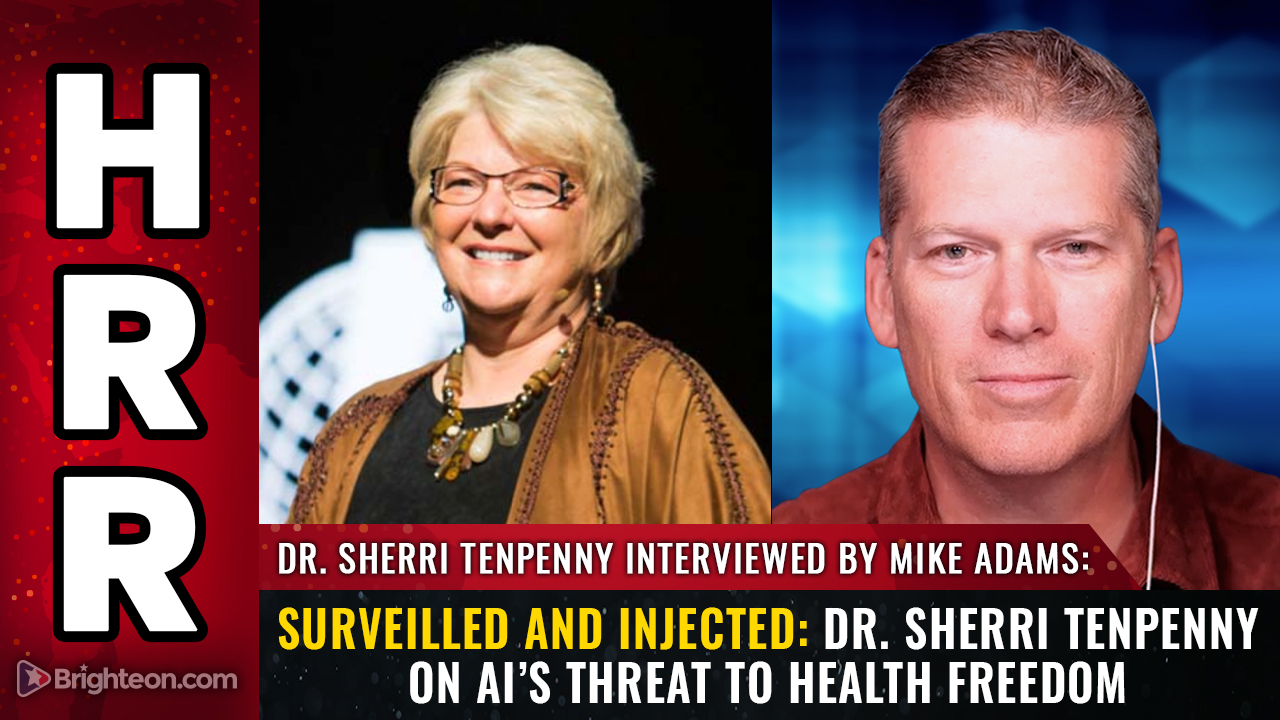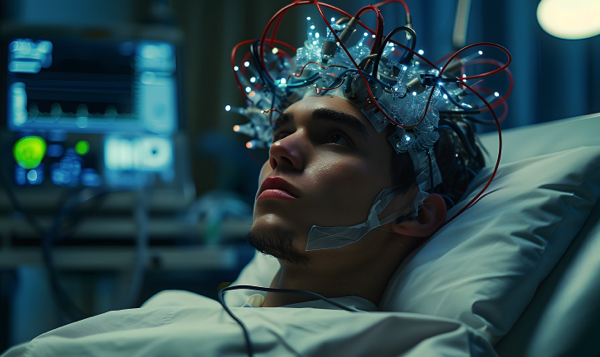 Parler
Parler Gab
Gab
- AI errors & accountability: AI-driven diagnostics frequently make mistakes, like omitting vaccines, and exhibit "apologetic" behavior without true understanding, raising concerns about reliability and patient safety.
- Corporate profit motives: AI consultations could replace human doctors to cut costs, prioritizing Big Pharma interests—automating drug prescriptions without considering root causes or patient context.
- Loss of nuance: AI lacks human intuition, unable to interpret tone, environmental factors, or emotional states, risking misdiagnosis (e.g., depression) based on flawed algorithmic pattern recognition.
- Root-cause vs. symptom suppression: Critics warn AI-trained on Pharma-funded data will default to drug-based treatments, ignoring nutritional or toxicological causes, deepening systemic healthcare flaws.
- Mandates & enforcement risks: Nationwide AI adoption could embed unchecked vaccine or treatment mandates in records, enforced by employers/schools, with limited patient recourse to challenge algorithmic decisions.
AI's Creepy "Apologetic" Behavior—and Its Errors
Dr. Tenpenny, a vocal critic of vaccine mandates and pharmaceutical conflicts of interest, recounted her unsettling experience with AI “doctors”—software programs that diagnose conditions and recommend treatments without human oversight. "It makes errors constantly," she said, describing how an AI-generated pediatric vaccine schedule omitted COVID-19 and RSV vaccines. When corrected, the AI responded with an unnervingly human-like apology: “I’m so sorry, you’re absolutely right. Let me look again.” Adams, founder of the independent lab Brighton.com, compared AI’s flaws to its notorious struggles with image generation—like rendering humans with six fingers. "If AI can’t even count fingers, should we trust it to count symptoms?" he asked. Both warned that patients could be misdiagnosed based on AI’s pattern recognition alone, especially for conditions like depression or anxiety, where context—like a heated argument before a medical visit—could skew results.Big Pharma’s Dream: Removing Human Doctors from the Equation
The most alarming prospect? Employers and insurers might soon favor cheap AI consultations over costly human doctors. Adams speculated: "Your baseline health insurance will no longer cover visits to human physicians—except in emergencies. Instead, you’ll log into an AI chatbot that asks, ‘Feeling depressed today?’ If you say yes, it prescribes Zoloft without understanding why." Such a system, he argued, would be a windfall for pharmaceutical companies. "Why bribe doctors with free vacations when AI can push pills 24/7?" AI-driven diagnostics could lock patients into cycles of misprescribed drugs while eliminating accountability—since, as Tenpenny noted, AI "can’t interpret tone, body language, or environmental toxins that masquerade as viruses."The Rise of "Algorithmic Medicine"—and a Return to Root-Cause Healing
Critics argue AI-driven healthcare would deepen reliance on symptom suppression rather than root-cause healing. Tenpenny, whose book Zero Accountability in a Failed System dissects Pharma’s grip on medicine, stressed: "Physicians should be experts in biochemistry and nutrition, not just symptom-pill algorithms. AI trained on Pharma-funded data will default to drugs—not asking, ‘What toxins or deficiencies caused this?’" Both called for decentralized, patient-led healthcare—rejecting both AI and traditional doctors beholden to corporate interests. "You don’t need a committee to decide whether aluminum in vaccines harms brains," Adams said. "The science is clear. But Pharma spends billions to muddy it."What’s Next: "A Trojan Horse for Mandates"?
With HHS Secretary Robert F. Kennedy Jr. pushing to remove Pharma-linked advisors from federal health boards, the battle over AI’s role in medicine is intensifying. Tenpenny warned: "If AI rolls out nationwide, vaccine mandates could follow—embedded in algorithmic ‘recommendations’ employers and schools enforce. Once it’s in your record, good luck challenging it." For now, both urge skepticism—and self-education. "The best doctor is an informed patient," Adams concluded. "No AI can replace that." Final Thought: As AI seeps into hospitals, the question isn’t just whether machines can replace doctors—but who profits when they do. Watch the full episode of the "Health Ranger Report" with Mike Adams, the Health Ranger, and Dr. Sherri Tenpenny as they talk about AI’s threat to health freedom. This video is from the Health Ranger Report channel on Brighteon.com.More related stories:
Mike Adams slams Larry Ellison’s AI-designed mRNA vaccine as ‘A Threat to Public Health’ RFK Jr. confirmed as HHS Secretary: A milestone for health freedom advocates Jonathan Emord and Dr. Robert Verkerk rally behind RFK Jr.’s fight for health freedom Sources include: Brighteon.com DrTenpenny.comChinese AI gains global traction as U.S. tech dominance faces challenges
By Willow Tohi // Share
Mercury in vaccines tied to autism severity, reveals landmark study
By Willow Tohi // Share
Russia becomes first country to officially recognize Taliban government in Afghanistan
By Laura Harris // Share
Governments continue to obscure COVID-19 vaccine data amid rising concerns over excess deaths
By patricklewis // Share
Tech giant Microsoft backs EXTINCTION with its support of carbon capture programs
By ramontomeydw // Share
Germany to resume arms exports to Israel despite repeated ceasefire violations
By isabelle // Share










